Tips to Maintaining a Garden Without Pesticides

The use of pesticides to manage garden insect pests has proven to be effective and because of this, many turn to these pesticides when pest issues arise. Still, many pesticides are highly toxic and can harm humans, pets, pollinators, wildlife, and beneficial insects when coming in contact with them for example drift off in the air, soil, and water causing contamination. What makes matters worse is when these chemicals are misused or overused. There should be a safer approach to maintaining a healthy garden without the use of pesticides and if pesticides must be brought consideration should be taken to start with the least toxic first.
I have worked in the landscape and gardening field for many years and have had the challenge of having to deal with the many garden insect pests that can be a menace. To bring solutions to this problem in some instances I resorted to using pesticides that proved to be beneficial.
But can you imagine maintaining a garden without pesticides though insect pests are present? now I know this sounds strange because the question is how then do we deal with those pesky insects and maintain a healthy garden at the same time? Sounds impossible, not so, it is all a matter of knowing what to do. Put these simple steps into practice and the rest will be nothing but garden success.
Location
The right plant for the right location- Choosing the right plant for the right location is something that I learned over the years. Some plants love full sun, some love partial sunlight and then others prefer shaded areas. A good source of information is to check your nurseryman or visit your garden center and talk to an experienced sales rep who is knowledgeable in this area.
Quality Garden Soil
Good garden soil-Soil does matter because not only do our plant roots take anchor in the garden soil but a good garden soil will hold the right amount of water, and will allow excess water to drain on through. Good garden soil will also increase proper air circulation, recycle nutrients, and make them available to plants. Different plant species require different soil types to thrive, for example, I will never install a high-maintenance plant or a plant that needs moderate moisture in sandy soil. The right plant + the right soil type will encourage healthy plants.
Water Requirements
knowing the water requirements of your plants can make or break your garden. Overwater your plants and your plants will suffer, shortchange your plants, and again they will suffer so make it your business to know your plant water requirements. A plant that does not receive sufficient water will go into stress and become weak and will not be able to stand up against garden insect pests. If plants are overwatered will become diseased and will suffer from root rot so again know your garden plants watering needs and give them that, no more no less.
Debris
A debris-free garden is an attractive garden and one that will discourage garden insect pests from invading and seeking shelter in your garden. Insects will seek to overwinter in a garden that is poorly kept, debris will also encourage rodents for example rats and mice which can become another issue so a debris-free garden is a pest-free garden that will promote healthy plant growth.
Weeds

Weeds can and are an eyesore that can take away from your garden’s beauty. Weeds also compete with garden plants for water and nutrients, encouraging disease and insect pests. Keeping your garden weed-free will also ensure the overall health of your garden plants. The ideal time to weed your garden is in the morning just before the sun rises or late in the evening when the sun is about to set. Put a weed plan in place to make your weed removal project easier.
Use of Fertilizers
Fertilizers are not planted food according to popular belief, plants produce their food through the process known as photosynthesis. Plants convert sunlight, water, and carbon dioxide into a sugar called glucose. Fertilizers, however, are plant nutrients. These are the building blocks of all plant life. So give your plants the nutrients they need to keep them strong and fit so they can withstand attacks from the bad bugs also known as garden insect pests. Know what fertilize you are using and use according to the manufacturer’s directions because overuse of fertilizer can harm garden plants
Combating with Beneficial Insects
The use of insects (beneficial insects) to eliminate other insects (insect pests) is a popular practice for managing garden insect pests. Beneficial insects are just what they are said to be beneficial insects protect our garden plants by feeding on the bad bugs. This is a natural way to maintain a healthy pest-free garden also known as biological control. The installation of certain plant species in your garden will attract beneficial insects or these insects can be purchased from your plant nursery or garden center. some of these plants are as follows.

- Oregano.
- Rosemary.
- Marjoram.
- Mint.
- Tarragon.
- Creeping thyme.
- Catmint.
- Mexican sunflower.
- Yarrow.
Consider Pest & Disease Resistance Plants
If you’re having to deal continually with pest and disease issues then why not choose plants that are pests and disease resistant this way you will be able to sleep at night knowing that you have plants that can thrive in these conditions.
Sticky Traps
Sticky traps are also a natural way to eliminate garden pests. These traps can be purchased from your garden center.
Hand Picking
This may be tedious but this is also a safe way. Hand-picking and using a combination of the other methods are effective. For example snail and slug control.
Organic Sprays

Organic sprays such as garlic, and hot pepper sprays are a good choice. Then there are also.
- Citrus Insecticides
- Neem Oils
- Diatomaceous Earth
- Epsom Salt Pesticide
- Seaweed Spray
Chickens and Ducks
That’s right you heard me, sounds crazy but having chickens and ducks hanging around your garden will get the job done as these guys make a meal out of the bad bugs. The only drawback is that you don’t want any of the good bugs to become a meal but hey at least you will be able to keep the bad bugs under control right? This method works wonders and can bring these insect pests under control.
Lawn Care
A healthy, well-kept lawn will increase a property’s value but it is the care that will minimize insect pests and disease.
- Install your lawn based on the variety in the proper location.
- Ensure that the right soil type is used.
- Keep your lawn cut at the proper mowing height.
- Ensure that your lawn is always raked clean of leaves and other debris.
- Give your lawn the right amount of water.
- Give your lawn a boost by applying the right fertilizer at the proper rate.
Bonus Just for You
- Inspect plants before you make a purchase.
- Make sure the leaves, roots, and stems are not damaged.
- Check for weeds, diseases, and insects.
- Ensure that plants are not root-bound when purchasing container-grown plants.
- Plants that are growing healthy because of proper maintenance are likely to fall prey to disease and garden insect pests.
10 Frequently Asked Questions (FAQs)
1. Is it really possible to garden successfully without pesticides?
Absolutely! Many gardeners grow healthy, thriving plants without a single drop of synthetic pesticide. By using natural methods like companion planting, beneficial insects, and healthy soil practices, you can keep pests in check and enjoy a lush garden the eco-friendly way.
2. What can I use instead of chemical pesticides to control pests?
You’ve got lots of options! Try neem oil, insecticidal soap, diatomaceous earth, or even a homemade garlic spray. These natural alternatives are effective but much gentler on your garden—and the planet.
3. How do I prevent pests without spraying anything at all?
Start with healthy soil and choose pest-resistant plant varieties. Add mulch to deter bugs and weeds, and rotate your crops each season. You can also use physical barriers like row covers or netting to keep pests out without a drop of spray.
4. What are beneficial insects, and how do they help?
Beneficial insects are nature’s pest patrol! Ladybugs, lacewings, and praying mantises love munching on aphids, mites, and caterpillars. You can attract them by planting flowers like marigolds, yarrow, and dill. Let them do the work for you!
5. How does companion planting help reduce pests?
Some plants naturally repel insects, while others attract good bugs. For example, planting basil near tomatoes helps keep hornworms away. Marigolds deter nematodes, and nasturtiums can trap aphids. It’s like building a pest-fighting team using plants!
6. Can I still get rid of weeds without herbicides?
Definitely! Mulching is your best friend—it smothers weeds and keeps the soil moist. You can also hand-pull weeds or use tools like a hoe or weed torch. It’s a bit more effort, but totally worth it for a chemical-free garden.
7. Will gardening without pesticides affect how much I harvest?
Not necessarily. In fact, with good organic practices, your yields can be just as good—or even better—because your soil stays healthier long-term. Some pests might nibble here and there, but strong plants can handle it.
8. How do I deal with slugs and snails naturally?
Try putting out shallow dishes of beer—they’re attracted to it and drown. Crushed eggshells or diatomaceous earth around your plants can also create sharp barriers they won’t cross. You can even hand-pick them at night with a flashlight.
9. Is organic gardening the same as gardening without pesticides?
Not quite. Organic gardening still allows organic-approved pesticides, like neem oil or BT (a natural bacteria). Gardening without any pesticides means avoiding both synthetic and organic sprays. It’s just a personal preference for a gentler touch.
10. What are the long-term benefits of a pesticide-free garden?
Going pesticide-free builds a stronger, more resilient garden over time. Your soil stays rich and alive, pollinators like bees and butterflies flourish, and you create a safer space for pets, kids, and wildlife. Plus, your veggies taste even better!
Conclusion
Gardening without pesticides is a great way not only to save money but also to maintain a garden that is healthy where the air is not contaminated and the good bugs can move about freely as they help our garden plants by getting rid of the bad bugs. So consider trying these methods and watch as your garden flourishes.
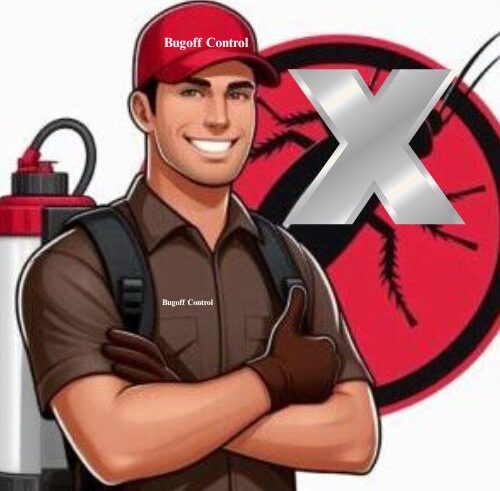


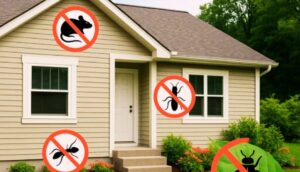
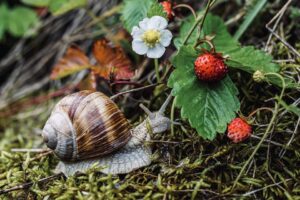
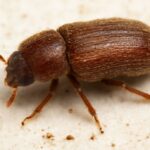
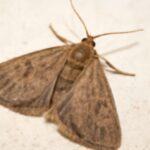
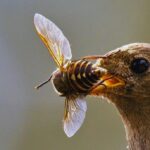
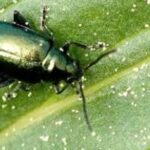

Hi. These are some really good recommendations for gardening and maintaining your garden in a more safe and clean way. Those pesticides can really be a big problem for the amount of time and energy money you put into your garden you have to be careful with every little thing.
It is also best to use pesticides as a last resort and if you must then go for those that are safe to use around humans and pets. I am happy to help.
hi, as someone who doesn’t know much about bugs, reading this article was quite enlightening. The idea of managing a garden without relying on chemical pesticides is intriguing, especially since I initially assumed that pesticides were the only effective solution for dealing with bugs. It’s interesting to learn that certain plants can repel bugs or attract beneficial insects that keep harmful ones in check. I wasn’t aware that maintaining healthy soil and practicing crop rotation could also reduce the need for pesticides.
Gardening without pesticides or using organic pesticides is a great approach to avoid food contamination and contamination of the air, and the water table and protecting humans, pets, wildlife, beneficial insects, and pollinators. We should always consider the safe approach first and use less toxic pesticides if needed!
Thank you. I haven’t had a garden in a long time but I am familiar with the concepts of Pests. I also think we need to be aware of where and how much fertilizer we use, especially is areas close to lakes, rivers, and streams. Also, you mentioned pest resistant plants, but you didn’t name any. I enjoyed this article and will be looking for more about controlling pests and tips for gardening. thank you.
Thank you so much for your kind words, I am always happy to help!